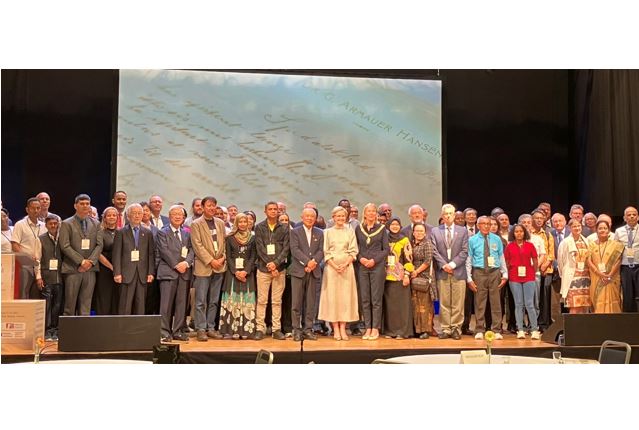TOKYO, June 22, 2023 — A two-day conference commemorating the discovery of the bacillus that causes leprosy 150 years ago took place in Bergen, Norway, on June 21-22, 2023.
Organized by the Sasakawa Leprosy (Hansen’s Disease) Initiative and the University of Bergen, the conference in the city where Norwegian Dr. Armauer Hansen identified M.leprae in 1873 was attended by over 200 people, including medical, human rights and historical preservation experts, as well as researchers, NGOs and organizations of persons affected by the disease.
Approximately 200,000 new cases of leprosy, also known as Hansen’s disease, are reported each year, and those affected by the disease continue to face discrimination in some parts of the world.
The conference focused on medical efforts against leprosy, issues of human rights and dignity, and preserving the history of leprosy for the lessons it can teach future generations. All three are pillars of the Sasakawa Leprosy (Hansen’s Disease) Initiative’s activities for a world free of leprosy and the discrimination it causes.
In a speech to delegates, WHO Goodwill Ambassador for Leprosy Elimination Yohei Sasakawa, who also serves as chairman of The Nippon Foundation, acknowledged the extraordinary advances made by medical professionals since Dr. Hansen’s discovery that leprosy was neither a curse nor a punishment from God but a chronic disease caused by a bacillus. But he noted that further action is needed to combat stigma and discrimination, pointing out that as many as 130 discriminatory laws against leprosy are still in place in more than 20 countries. “Today, when respect for human rights is a must, it is unacceptable to leave such a large-scale and serious human rights violation unaddressed,” he said.
Among the dignitaries who addressed the opening ceremony were WHO Director-General Dr. Tedros Adhanom Ghebreyesus and United Nations High Commissioner for Human Rights Volker Türk, who both delivered video messages, as well as Minister of Health and Care Services Ingvild Kjerkol of Norway.
Dr. Tedros said that much progress has been made in the fight against leprosy since the discovery of M. leprae and the birth of the WHO 75 years later, but that “much remains to be done towards our shared goals of zero disease, zero disability and zero discrimination.” He also noted that more effort is needed to recover from health system disruptions caused by the COVID-19 pandemic.
Türk said that to better the lives of people affected by leprosy, “we need to address the physical symptoms, but we also need social and behavioral measures to address stigma and discrimination. We need comprehensive strategies with access to quality care, education, and social protection,” and told participants that “together we can make a real difference in ending leprosy, which causes immense preventable and unjustifiable suffering for thousands of people.”
Closing remarks were delivered by Dr. Takahiro Nanri, executive director of Sasakawa Health Foundation. He noted that this was the third international conference that the foundation has helped to organize since launching its “Don’t Forget Leprosy” campaign in 2021 with the purpose of helping to ensure that the disease and those affected by it are not overlooked amid the coronavirus pandemic.
“Our purpose in organizing these conferences is to make the world aware that there are still many people suffering from Hansen’s disease and its consequences; to build momentum for collaboration toward the realization of a leprosy-free world; and to provide a setting for both formal and informal exchanges that can be a catalyst for innovative solutions that we as a foundation are ready to support,” he said.
About Leprosy
Leprosy, also known as Hansen’s disease, is an infectious disease that mainly affects the skin and peripheral nerves. Prior to the COVID-19 pandemic, which disrupted case-finding activities, over 200,000 new cases were being reported annually. Leprosy is curable with multidrug therapy, but left untreated can result in permanent disability. An estimated 3 to 4 million people are thought to be living with some form of disability as a result of leprosy. Many myths and misunderstandings surround the disease. In various parts of the world, patients, those who have been treated and cured, and even their family members continue to be stigmatized. The discrimination they face limits their opportunities for education, employment and full participation in society.
About Sasakawa Leprosy (Hansen’s Disease) Initiative
The Initiative (https://sasakawaleprosyinitiative.org/) is a strategic alliance between WHO Goodwill Ambassador for Leprosy Elimination Yohei Sasakawa (https://www.nippon-foundation.or.jp/en/who/message/profile), The Nippon Foundation (https://www.nippon-foundation.or.jp/en) and Sasakawa Health Foundation (https://www.shf.or.jp/en) for achieving a world without leprosy and problems related to the disease. Since 1975, The Nippon Foundation and Sasakawa Health Foundation have supported the national leprosy programs of endemic countries through the WHO, with support totaling some US$200 million to date. In cooperation with the Japanese government and other partners, the foundations have played an important role in advocating with the United Nations, helping to secure a 2010 UN General Assembly resolution on elimination of discrimination against persons affected by leprosy and their family members and the appointment of a UN Special Rapporteur on leprosy by the UN Human Rights Council in 2017.




